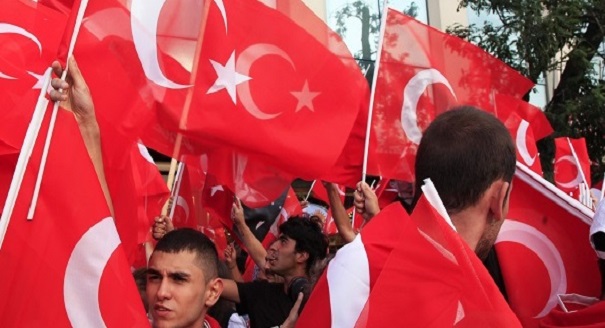The protests in Turkey are directed against the Recep Tayyip Erdogan government. His party—the Justice and Development (AK) party—is usually called “moderate-Islamist.” The AK is rejecting the legacy of the founder of the Turkish Republic, Mustafa Kemal Ataturk, cautiously making the country more Islamic. It is common knowledge that Ataturk opposed religious tradition—he abolished the caliphate, prohibited dervish brotherhoods, was making Turks change into European clothes, and ultimately made the former Ottoman Empire so secular that it did not entirely fit into the Muslim world where “islamist passions” raged from the 1970s.
The secular nationalists’ positions were shattered in 1995 when Necmettin Erbakan’s Refah islamist party won the elections. Its effective successor—the AK—has been in power since 2002. Its ambitious leader practically eliminated the interference into politics of the Army, which had been in the way of his politics of “creeping islamization.” Erdogan was counting on winning the 2014 presidential elections and then making changes to the Constitution, thus finally subjecting society to his full control.
The optimism of the Turkish prime minister had been to a large extent reinforced by the Islamists’ successes in the Arab states. In 2012, some analysts were saying that the Turkish experience of moderate Islamism could be useful for the new Egyptian, Libyan, and Tunisian elites. Turkey offered active political, financial, and spiritual support to the Syrian opposition. Having decided that his country could become the leader in the Middle East, Erdogan even took the risk of worsening his country’s relations with Israel.
But his grand plans hit a snag when the street protests against building a supermarket in place of Istanbul’s Gezi Park in the twinkle of an eye turned into the most acute political crisis. It became immediately clear that Erdogan’s popularity is relative, and his Islamization agenda—which he publically denies pursuing—draws ire of a large segment of the population. As the Russian journalist Aleksandr Bychkov put it, “‘Ataturk’s soldiers’ declared a war on Islamization.” So far, Erdogan has been unable to completely overcome the “Ataturk’s soldiers.”
The Turkish protests have become a sort of a response to the Arab Spring. While in the Arab world the Islamism has gained strength, its moderate Turkish version has suffered a serious blow. The Turkish crisis has coincided with the exacerbation of the situation in Egypt where President Mohamed Morsi, who had been promoted to power by the Islamic Brotherhood, is also facing mass public discontent that forces him to compromise and maneuver to retain his power.
Neither the Arab Spring nor the tumultuous Turkish June, or for that matter the election victory of the Iranian “liberal” Hassan Rowhani, had been predicted. The West and Russia remain somewhat perplexed on this account. Yes, Erdogan is likely to prevail over his opponents. But his party’s image will be tarnished in this tussle, and Erdogan himself will lose some of his confidence. He will have to make serious effort to stay in power. Besides, he will have to choose between “sacrificing Islam” or, on the opposite, becoming more radical on the issue of religion, thus ensuring his support among the conservative segments of society. The Egyptian leader is facing a similar dilemma.
The Islamists’ successes alternate with their failures. The intrigue of the Arab Spring and the Turkish Summer endures.
